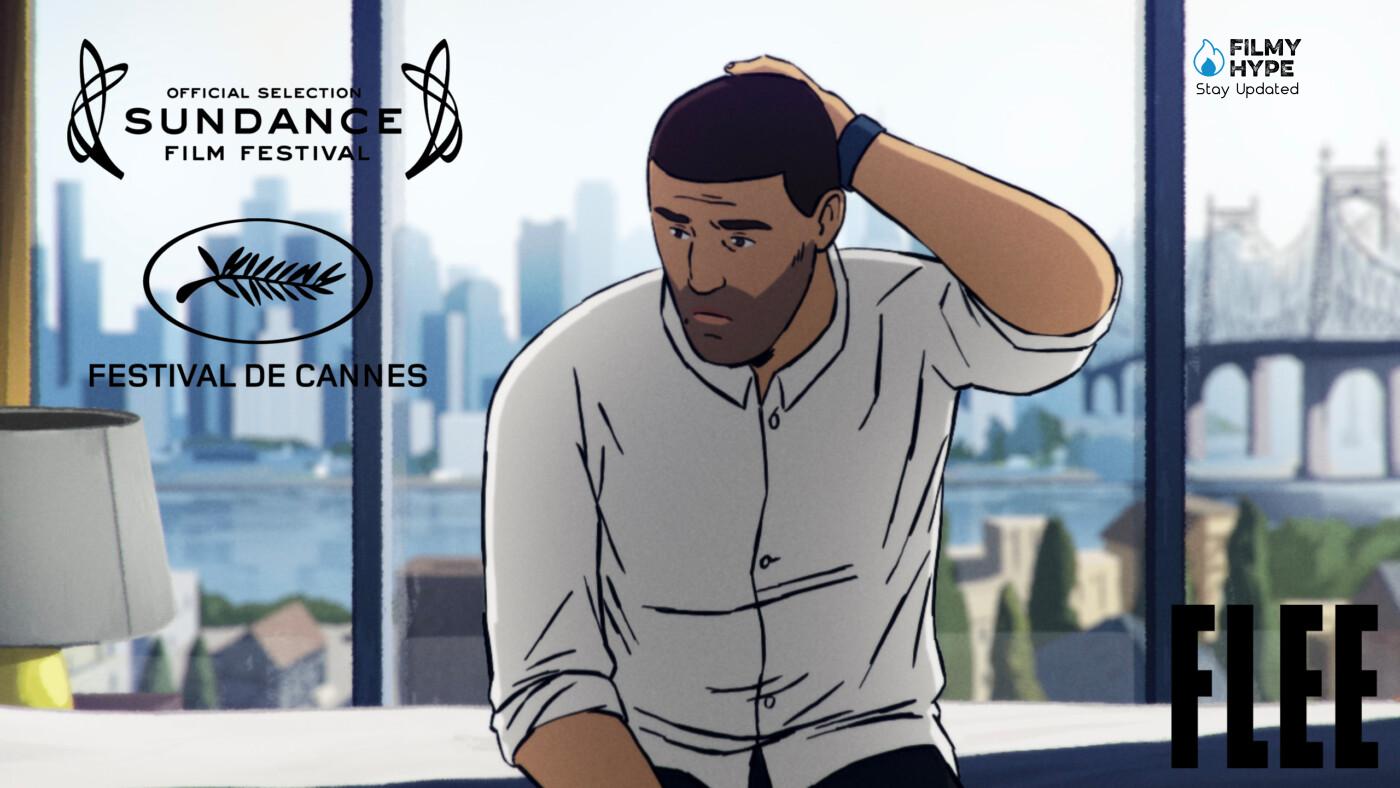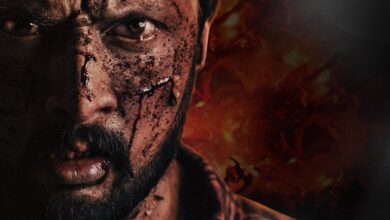Flee Movie Review: Jonas Poher Rasmussen’s Documentary Film Nominated For The 2022 Oscars
Stars: Daniel Karimyar, Fardin Mijdzadeh, Milad Eskandari (voice)
Director: Jonas Poher Rasmussen
Where To Watch: Hulu and Amazon Prime Video
Filmyhype.com Ratings: 4.5/5 (four and half star)
“What is home to you?” This is the question that Jonas Poher Rasmussen asks the viewer in his documentary Flee, of which we offer our review, nominated for an Oscar in the categories of Best Documentary, Best Animated Film and Best Foreign Language Film. Many see their home as the one in which they are born and raised, that grazing nest that will always protect you and make you feel safe whatever happens in your life. But what does home mean to a person- a child, actually – forced to flee their bombed-out territory, in search of a new nest in a world that seems to chase you away every time you settle down? This is the story of a high school friend of director Rasmussen who emigrated from Afghanistan to Denmark when he was just a teenager.

Flee Movie Review: The Story
To keep his identity as secret as possible for reasons that are later revealed in the course of the documentary, Rasmussen chooses to use pseudonyms for the protagonists of his story, accompanied by the use of animation that protects even more the identities of Amin and of his family members. The voice, however, is his, that of the protagonist Amin, as well as the tragic story that he bravely decides to tell for the first time. We meet Amin when he lies down with his face turned towards the camera and his eyes closed as he tries to remember the beginning of his story.
As Rasmussen records, he shows the audience the entire narrative through a cartoon, which somehow represents Amin’s own consciousness and his memories making their way to the big screen. The story – alternating between past and present – moves back and forth in a straight line, remembering a child and adolescent Amin who runs away from his home and discovering the adult Amin, in love with her boyfriend and with a career that makes him happy. The documentary is an escalation of tension, suspense and horror in the face of a story that unfortunately seems to be more current than we think.
Flee tells a story that is unfortunately too modern and increasingly urgent: the difficult situation of refugees displaced by the war and other emergencies of the 1980s. It is not only the story of Amin, but it is the story of him and that of those who – like him – have left their native nest to find a safer one somewhere in the world. The story of Amin and his family is very simple, albeit destructive. The viewer cannot help but empathize with the protagonist, hoping that he too can finally find happiness. The audience feels part of the story and becomes more familiar with the protagonist than he can believe.
Each story begins in the same way: the viewer who looks down on Amin, almost entering directly into his head, becoming an active part of the story, as does the director Rasmussen. The friendship and familiarity that binds the director and the protagonist of the story allow the story to become more and more intimate, so as to also introduce the public into the story, which gradually becomes more intense and exciting. Flee is not a movie, Flee is a stream of memories of the people Amin loved in his troubled life, memories collected over time, enclosed in one’s unconscious and kept secret for the good of all, until the young man finally decides to tell about himself and explode in a rainbow of narration, while always maintaining his own modesty and confidentiality.
Flee Movie Review and Analysis
Amin recounts his moments as a child in Afghanistan, when free he ran around the streets in his sister’s night dress, while listening to music. But one day the community is devastated by the civil war and the family by the disappearance of their father, taken by the Mujahideen. From there the story changes completely and becomes a succession of escapes towards a better future. This change of situations is also experienced with the use of the color palette of the animated version. We go from a beige and brown from Afghanistan – the warm colors of the happy moments of the child – to an increasingly cold succession of gray and black, synonymous with the horrors that the young Amin had to endure.
The bleak years spent in Russia are characterized by saturated colors, the movements of the characters become mostly snappy and their facial expressions almost nonexistent. The color returns instead in the present, when Amin lives with her boyfriend Kasper and with him tries to build his own future with a new home and a new stability, far from the past, but with her memory always there. The colors come alive in the final part of the documentary, when you switch from the animation to the live action version, trick used by Rasmussen to remember that this is a real story, made by real people who have really lived those experiences. The director wanted to underline that like Amin many live the same situation as him and not to remain indifferent to this type of experience.
So what is home? For many it is the place where we grew up, for others it is where the people we love live or where we have decided to go to live and feel good. It can be a place or even just a group of people we are connected to. But what is home for a person who has been forced to flee from an early age and who – although she has grown up by now – must continue to live by lying, building a different reality from the one in which she was born? Amin no longer has his old house, because he was torn away from him too soon and he will never be able to return to that house. Like him, many have lived in this situation and many kids today are like Amin. They are the children of Afghanistan, those of Ukraine, those of every part of the world where others decide that their home is no longer good for them.
Flee is not just a film, it is not just a documentary, it is not just a journey to the cinema of a few hours. Flee is reality, it is the world we thought we had now passed and the one in which many are still forced to live. Flee is a one-of-a-kind case. A truly unique case also in the Academy, that of being a candidate in three very different categories. Yet for Flee it is not difficult to be an extraordinary case, indeed it is a film made to be remembered, so that Amin’s story is not forgotten, and like him that of many people who in the past and unfortunately also in the present have escaped from their home to create one that was far from one’s suffering and in the image of one’s dream of living peacefully.
Flee Movie Review: The Last Words
The documentary is an escalation of tension, suspense and horror in the face of a story that unfortunately seems to be more current than we think. The viewer cannot help but empathize with the protagonist, hoping that he too can finally find happiness. The friendship and familiarity that binds the director and the protagonist of the story allows the story to become more and more intimate, to also introduce the audience into the story, which gradually becomes more intense and exciting.






